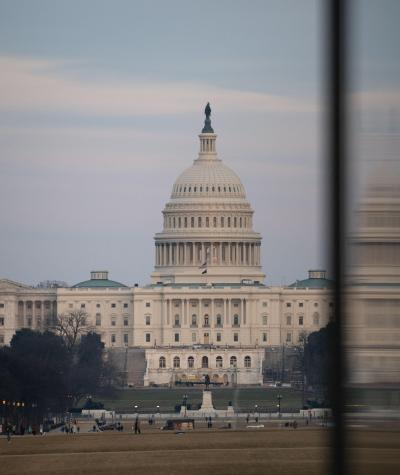The U.S. Senate has a well-established ethics enforcement problem. Campaign Legal Center has been highlighting the Senate Ethics Committee’s inadequacies since 2014, when we found the committee’s enforcement process limited and opaque.
In early 2021, CLC conducted a comparative study to evaluate 10 years of ethics enforcement in the U.S. House and Senate. In doing so, we found that the Senate Ethics Committee was not only still opaque in its process for holding officials accountable, but it rarely held them accountable at all, especially when compared to the House.
But what about more recent data on Senate ethics enforcement? What if we want to know about ethics investigations in this crucial time leading into an election year?
Sadly, we are mostly out of luck. To conduct our 2021 study, we reviewed years of Senate Ethics Committee’s annual reports, which showed that between 2009 and 2020, the Senate Ethics Committee dismissed 52% of Senate complaints and found a violation in 3%.
But the reports do not show what happened in many of these cases, because the committee only produced a public report for 5% of investigations.
On the other side of Capitol Hill, the Office of Congressional Ethics (OCE), the nonpartisan independent ethics office for the House, dismissed 56% of complaints, found a violation 41% of the time, and produced a public report for 43% of investigations.
When CLC attempted to update the comparative study to include 2021 through present day, we could only do so partially. While we can, and do, refer to the Senate Ethics Committee’s annual reports for 2021 and 2022, we do not yet have any information about 2023.
Data for the House abounds, however; OCE publishes reports quarterly which state how many investigations have been conducted, how many complaints have been dismissed, and how many complaints have resulted in a finding of evidence of a violation. They also provide a link to all reports released in that quarter.
This gap in ethics enforcement transparency means the public has statistics for OCE, which has conducted 10 investigations so far in 2023, dismissed seven of them, found two violations, and published one report.
But it’s November, and the public has no idea what the Senate Ethics Committee has been up to for nearly 11 months. And we won’t find out what the committee has been up to this year until sometime in January 2024.
The lack of accountability for ethics violations in the Senate diminishes public trust because it fails to uphold voters’ right to know whether their elected officials are acting both ethically and transparently.
This is yet another reason why the Senate’s current system of ethics enforcement is woefully inadequate. Effective ethics enforcement requires a committee that will be transparent and actively enforce ethics rules.
That is why the Senate needs to and should create an independent office for ethics investigations. This office should be modeled after OCE, which has proven its ability to operate effectively and transparently in a nonpartisan manner.

